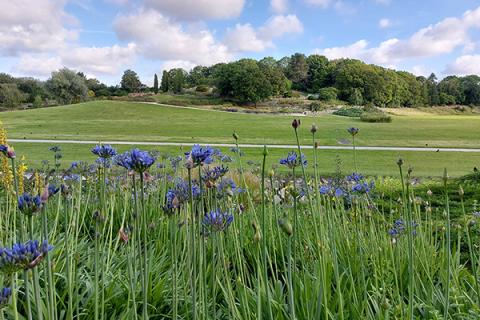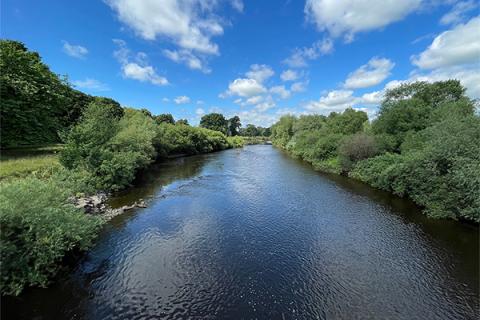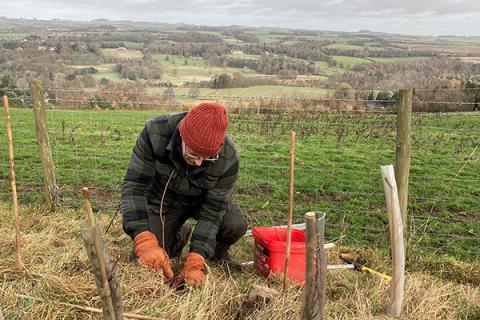
Natural Capital
Biodiversity Net Gain (BNG)
Biodiversity Net Gain (BNG) is legislation introduced to ensure the natural environment is left in a measurably better state than before development by enhancing a site's biodiversity value. It is a new approach to development that is mandatory under the Town and Country Planning Act. Developers must commit to creating and improving natural habitats that may have been negatively impacted by development projects by at least 10%.
We act for both developers in securing BNG on-site and for the owners of multiple BNG-specific sites that are either being set up or are currently active. This is an emerging area of commercial practice and there are only a few schemes set up in the north at present.
Nutrient Neutrality (NN)
Nutrient Neutrality (NN) is slightly different. It applies only to certain river catchment systems, including the Eden and Derwent in Cumbria and the River Tees. More catchments can be added by government ministers and we expect the number of catchments affected to increase. The legislation seeks to avoid any increase in nutrient runoff in the affected catchments.
Landowners can assist by reducing use of fertilizer on land thus creating nutrient credits which can be sold to regulatory bodies or directly to developers seeking to build within that catchment.
We are advising owners on schemes to create credits, including for sale into national credit banks and developers seeking to establish contracts to purchase credits when needed.
Developers
Developers can compensate for biodiversity loss in several ways, either by including biodiversity improvements on the same site as their project, purchasing biodiversity units from a provider who has created them on another nearby site, or purchasing biodiversity credits from a government-backed scheme.
Nutrient Neutrality won't be practical to deal with on-site, so it will always require contracting with a third party or government credit scheme.
Farmers and landowners
Farmers and landowners could develop either short-term capital gain or long-term income streams by working with developers to provide off-site BNG on their land.
The sale of BNG units can provide a cash injection to farmers and other landowners. It could be used to fund land improvements, pay for longer-term management or diversification and also make a profit.
It is possible and even encouraged to combine BNG and NN on the same land if ecologically appropriate, a process known as stacking, bundling, or agreements. This will require being in an affected river catchment, but can be an effective multiplier for landowners.
The land remains in the landowner's ownership and can still be farmed subject to certain restrictions.
- Negotiating section 106 agreements, including BNG obligations with local authorities for both on-site and off-site provision.
- Advising developers on the purchase of units either unconditionally for existing development or on a conditional or call option basis for future requirements.
- Negotiating planning obligations relating to NN requirements.
- Advising on the purchase of NN credits either unconditionally or on a conditional call option basis.
- Negotiating section 106 agreements or conservation covenants with local authorities to set up BNG schemes
- Advising on local land charges and Natural England registrations of a BNG scheme
- Setting up sale documents for the sale of units, either on a conditional basis or unconditionally, for landowners.
- Off-site BNG agreements with developers.
- Negotiating NN agreements either as s.106 agreements with local authorities or as conservation covenants with national responsible bodies to create credit.
- Advising on the sale of NN credits to national credit banks or directly to developers.
- Negotiating s.106 agreements with developers to secure the requirement for BNG units or NN Credits.
- Negotiating s.106 agreements with landowners for the creation of BNG units or NN Credits or both.
- Advising Local Authorities on the creation of their own BNG unit and NN credit banks.
We’re proud to be the first provider to have a site placed on the national register and we thank Northumberland County Council and Muckle in helping us achieve this milestone.
We chose to work with Muckle due to their experience in working with Northumberland County Council and their pragmatic approach to the application of this new legislation. BNG is new for everyone, but Muckle was able to work quickly and was extremely responsive throughout. Richard and the team recognise the long-term possibilities of BNG and were hands-on in their approach, with Richard coming along to help plant the first hedge.
Biodiversity Net Gain (BNG) is an approach to development and land management that ensures the natural environment is left in a better state than before. It requires developers to assess the impact of their projects on biodiversity and take steps to enhance or restore habitats. BNG is measured as a percentage improvement over the original biodiversity value, with policies typically requiring at least a 10% gain.
It is mandatory under the Environment Act 2001, which amended the Town and Country Planning Act 1990.
There are three options. Developers can either offset the loss of biodiversity by having BNG on site; this is secured by way of a planning agreement for the development site in the same way as any other planning obligation. Alternatively, they can buy BNG units from a provider who has created them on a different site within the locality on a one-for-one basis or a neighbouring locality at a 33% uplift or nationally at a 100% uplift. If that is not possible, then they can purchase BNG credits from a government-backed scheme again with 100% national uplift.
Local planning authorities regulate sites for BNG in the same way that they regulate on-site BNG; it is monitored with reporting requirements and must be subject to a habitat, maintenance and management plan (HMMP). HMMPs contain details as to the potential habitats created, their starting and target conditions, and the milestones that would be met. All legal agreements for BNG require the land to be kept for that purpose for at least 30 years. There is a small overlap in nutrient neutrality, and it is possible for both to be done on one site depending on the ecology.
Setting up this kind of scheme can be a more attractive option for a landowner looking to develop an income stream without having to develop their land or looking for a way to finance green initiatives. The sale of BNG units can provide a cash injection to farmers and other landowners, fund land improvements, pay for longer-term management, fund diversification and also leave a profit element.


--720.jpg)


.png)


